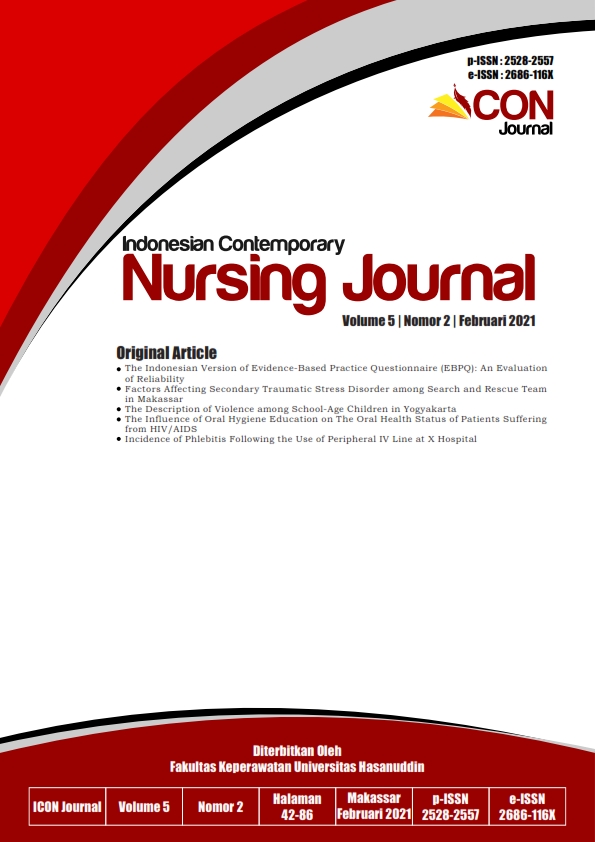Cultural-Based Diabetes Self-Care Management Education for People with Type 2 Diabetes Mellitus: Empowering Community Health Workers (Kaders) Program Evaluation
Keywords:
Community health workers, Kader, Community health centers, Puskesmas, People with T2DMAbstract
Aim: The aim of this study was to understand the perspectives of Kaders, community health nurses (CHNs), and the community on an empowerment program for Kaders in Indonesia. The program aimed to help Kaders provide cultural-based diabetes self-care management education for people with type 2 diabetes mellitus (T2DM). Methods: The empowerment program consisted of a four-month training program, including two full-day sessions on cultural-based health education for people with T2DM, followed by four months of monitoring T2DM patients. Fifteen Kaders from community health centers in Makassar City participated in the program. Focus group discussions (FGDs) were conducted with Kaders to explore their perceptions and experiences related to the program. Interviews were also conducted with CHNs and people with T2DM regarding their perceptions of the program. Results: The FGDs with Kaders resulted in four themes: overall training, guideline book, education and monitoring program, and potential obstacles. CHNs highlighted the benefits of the program, the guideline book, and the impact on patients. Patients identified three themes, including the benefits of the program, what was taught, and what was improved. Conclusion: The empowerment program for Kaders in Indonesia has proven to be beneficial for Kaders, CHNs, and the community. Kaders have the potential to provide effective and efficient health education with proper preparation and empowerment through knowledge and skills.Downloads
Download data is not yet available.
Dimensions
Published
2023-08-26
How to Cite
Kadar, K. S., Mulyana, A. S., Indargairi, I., & Jeremiah, R. D. (2023). Cultural-Based Diabetes Self-Care Management Education for People with Type 2 Diabetes Mellitus: Empowering Community Health Workers (Kaders) Program Evaluation. Indonesian Contemporary Nursing Journal (ICON Journal), 8(1), 16-28. https://doi.org/10.20956/icon.v8i1.26055
Issue
Section
ORIGINAL ARTICLE
Copyright & Licensing
Authors who publish with this journal agree to the following terms:
Authors retain copyright and grant the journal right of first publication with the work simultaneously licensed under a Creative Commons Attribution License that allows others to share the work with an acknowledgement of the work's authorship and initial publication in this journal.
Authors are able to enter into separate, additional contractual arrangements for the non-exclusive distribution of the journal's published version of the work (e.g., post it to an institutional repository or publish it in a book), with an acknowledgement of its initial publication in this journal.
Authors are permitted and encouraged to post their work online (e.g., in institutional repositories or on their website) prior to and during the submission process, as it can lead to productive exchanges, as well as earlier and greater citation of published work (See The Effect of Open Access).
Authors retain copyright and grant the journal right of first publication with the work simultaneously licensed under a Creative Commons Attribution License that allows others to share the work with an acknowledgement of the work's authorship and initial publication in this journal.
Authors are able to enter into separate, additional contractual arrangements for the non-exclusive distribution of the journal's published version of the work (e.g., post it to an institutional repository or publish it in a book), with an acknowledgement of its initial publication in this journal.
Authors are permitted and encouraged to post their work online (e.g., in institutional repositories or on their website) prior to and during the submission process, as it can lead to productive exchanges, as well as earlier and greater citation of published work (See The Effect of Open Access).
Most read articles by the same author(s)
- Suni Hariati, Andriani Andriani, Nurmaulid Nurmaulid, Kusrini S. Kadar, Erfina Erfina, The Characteristic of Parents and Elementary School Students in Offline Learning during The Covid-19 Pandemic in Indonesia , Indonesian Contemporary Nursing Journal (ICON Journal): Vol. 7 No. 1 (2022): Volume 7 No. 1 Agustus 2022

